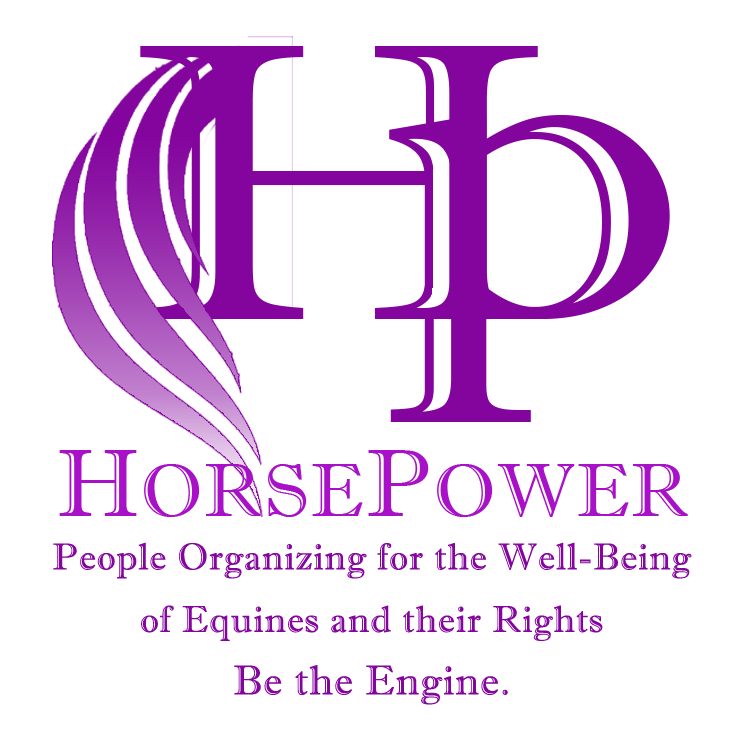HORSEPOWER, INC., SUBMITS TESTIMONY ON FEDERAL RESPONSE TO PANDEMIC REGARDING EQUINE FACILITIES.
June 24, 2020
Testimony submitted to: NEW YORK STATE ASSEMBLY STANDING COMMITTEE ON SMALL BUSINESS STANDING COMMITTEE ON WAYS AND MEANS STANDING COMMITTEE ON AGRICULTURE STANDING COMMITTEE ON BANKS OFFICE OF STATE-FEDERAL RELATIONS TASK FORCE ON FOOD, FARM & NUTRITION POLICY
Thank you for allowing HORSEPOWER, Inc., the opportunity to report on the impact of the federal government’s management of the economic destruction caused by the Covid-19 crisis. The health and well-being of 157,500 equine lives depends on the ability of their caretakers to provide for their physical and financial well-being.
We, HORSEPOWER, Inc., submit the following as New York State’s first nonprofit advocacy organization dedicated to the safety and wellbeing of equines. Our mission is to protect equine health and welfare, raise awareness about inhuman practices, and effect change in public policy. We are committed to ensuring that the care and protection of equines becomes and stays a priority in the halls of the State Capitol.
We have been tasked with addressing the federal government’s disorganized and confusing management of the economic impact of the Covid-19 crisis on equine facilities in New York State. Primarily, the help was slow in coming and, while it did provide some assistance, it was minimal in comparison to the need and fraught with bugs and errors that functionally prioritized assistance to corporations.
Many equine facilities in New York are small, family-owned enterprises. The first wave of financial support to small business arrived in two forms, Economic Impact Disaster Loans (EIDL) through the Small Business Association (SBA) and the Paycheck Protection Plan (PPP) offered through lenders who cater to small businesses. Equine facilities were prevented from applying for EIDLs in this first round of funding because the SBA has historically excluded them from borrowing under their rules. Thanks to our intervention and advocacy with our partners in Congress, the SBA capitulated to allowing equine facilities to apply for EIDLs, in addition to PPP loans. However, when owners of equine facilities attempted to apply for relief, the SBA’s lending software was overwhelmed by the volume of applications. Banks reported that they were not able to submit all of their applications for processing and approval. The SBA notified lenders that they were limiting the number of applications that could be submitted at one time. Larger banks bundled their applications and sent them through successfully, leaving smaller, community banks out of the funds allocated by the CARES Act.
One of the most devastating challenges equine facility owners have faced is that, due to the shutdown, they have been unable to teach lessons. That revenue is the financial mainstay of equine facilities and it is used for the care, feeding and maintenance of lesson horses. From March 2nd to the opening of phase one, equine facility owners lost an average of $1250 per week. Without this expected revenue, owners were forced to resort to siphoning their personal savings to care for their livestock. Additionally, many equine facilities reported losing an estimated 10% of their boarding customers as a result of the customers losing their own jobs and, with them, the ability to afford boarding when their relief from the unemployment system was delayed for a protracted length of time.
The federal response to Covid failed to provide clear direction for Commercial Horse Boarding/ Lesson facilities. Because they do not produce an agricultural crop, they are excluded from applying for agricultural aid and because they are not considered recreational, they are excluded from that arena as well. The failure to specifically designate the category under which equine facilities should fall under prevented owners from obtaining life- and livelihood-saving aid. While we are hopeful, the worst of the pandemic is behind us, we are ever cognizant of the many long-lasting effects and catastrophic financial losses to New York’s equine facilities.
As such, HORSEPOWER, Inc., calls upon New York State Legislature to set aside a fund specifically designated to support equine facilities when the next stimulus package is dispersed. New York is a horse state, maintaining a thriving equine industry is vital to the health of the State’s economy – we cannot afford to lose it or the horses that have served us. According to The New York State Equine Industry Economic Impact Study. “The equine industry has a $4.2 billion effect on the state’s economy and generates 33,000 full-time jobs. Equine commerce also results in $187 million in state and local taxes for New York. The thousands of horse farms, training centers and riding stables doing business across the state preserve 1.3 million acres of open space.” Thank you for the opportunity to submit this statement. We welcome any questions.
